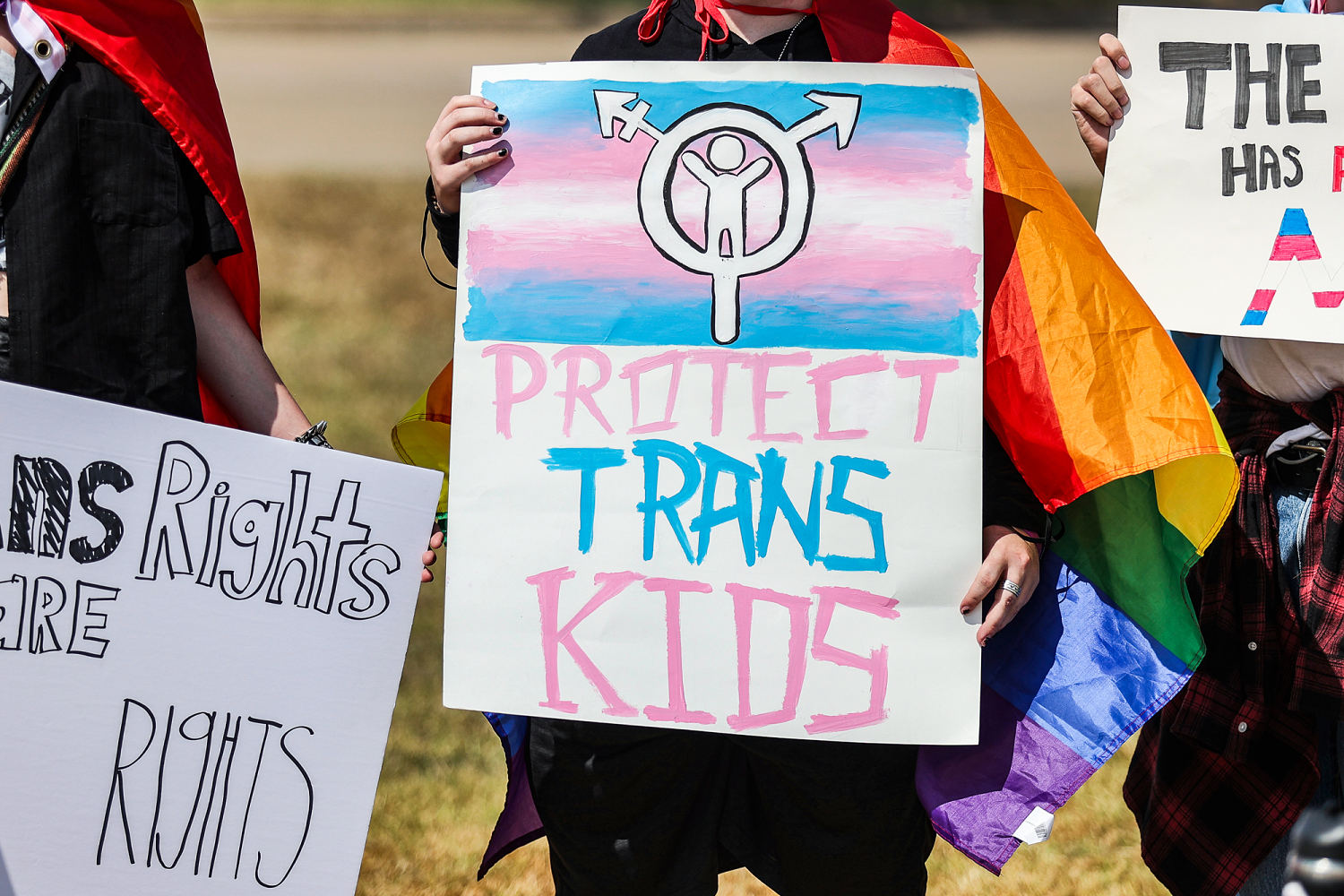Over 90% of trans youths live in states with bills that target their rights, report says


More than 9 in 10 (93%) transgender youths ages 13 to 17 in the U.S. live in states that have already passed or are currently considering bills to restrict their access to transition-related health care, school bathrooms, sports participation and pronoun use at school, according to a new report.
The report, published Tuesday by the Williams Institute at the UCLA School of Law, estimated the number of transgender youths affected by these four types of restrictive measures, which LGBTQ advocates typically oppose, and two other types of legislation that advocates typically favor: “shield” laws for transition-related care and bans on so-called conversion therapy. The researchers focused on previously enacted laws and measures that are still being considered in statehouses.
There are approximately 300,000 trans youths ages 13 to 17 in the U.S., and, according to the report, 38% of them live in the 24 states that have enacted bans on transition-related medical care for minors (including puberty blockers, hormone therapy and surgery); 40% live in the 27 states where their access to sports participation is restricted or state policy encourages such restrictions; 13% live in the 13 states that restrict their access to school bathrooms and other sex-segregated facilities; and 16% live in the 14 states that have restricted or banned their use of pronouns that don’t align with their birth sex in schools or other state-run facilities.
The Williams Institute report also found that 123,600 trans youths, or 41%, live in 16 states that had a ban on transition-related medical care pending in the 2024 legislative session, and 102,300, or 34%, live in 14 states with a restriction on sports participation pending.
The laws are among the wave of bills targeting LGBTQ people introduced by Republican lawmakers in recent years. In 2023, conservative state lawmakers introduced more than 500 such bills, breaking the previous year’s record of more than 300. So far this year, state lawmakers have introduced 487 such bills, according to the American Civil Liberties Union.
The Williams Institute also looked at measures that LGBTQ advocates have generally supported, and found that nearly half, or 48%, of trans youths in the U.S. live in the 14 states and Washington, D.C., that have passed “shield” laws on transition-related care. These laws, such as one signed by New York Gov. Kathy Hochul last year, bar state courts from enforcing other states’ laws that could allow a child to be taken away from their parents if their parents provided transition-related medical care, for example. Some of the shield laws also protect doctors who provide care to minors who travel from states where such care is banned.
The report also found that about two-thirds of trans youths live in the 27 states and Washington, D.C., that prohibit so-called conversion therapy, a discredited practice that attempts to change an LGBTQ person’s sexual orientation or gender identity and has been found to have negative mental health effects.
The types of laws that trans youths are affected by — positive versus negative — are largely determined by their geographic location, the report found. For example, 85% of trans youths in the South and 40% of trans youths in the Midwest live in a state that has enacted one of the four types of restrictive laws the Williams Institute evaluated. All trans youths living in the Northeast and 97% of trans youths in the West live in a state with either a shield law, a conversion therapy ban or both.
“For the second straight year, hundreds of bills impacting transgender youth were introduced in state legislatures,” the report’s lead author, Elana Redfield, a federal policy director at the Williams Institute, said in a statement. “The diverging legal landscape has created a deep divide in the rights and protections for transgender youth and their families across the country.”
For more from NBC Out, sign up for our weekly newsletter.






